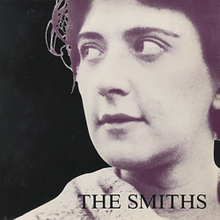
The Smiths were an English rock band formed in Manchester in 1982 and composed of singer Morrissey, guitarist Johnny Marr, bassist Andy Rourke, and drummer Mike Joyce. Morrissey and Marr formed the band's songwriting partnership. The Smiths are regarded as one of the most important acts to emerge from 1980s British independent music.

John Martin Marr is an English musician, songwriter and singer. He first achieved fame as the guitarist and co-songwriter of the Smiths, who were active from 1982 to 1987. He has since performed with numerous other bands and embarked on a solo career.
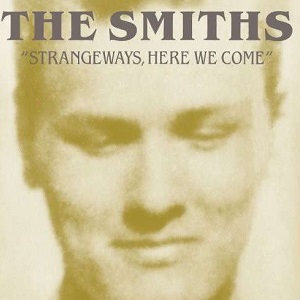
Strangeways, Here We Come is the fourth and final studio album by the English rock band the Smiths. It was released on 28 September 1987 by Rough Trade Records, several months after the group disbanded. All of the songs were composed by Johnny Marr, with lyrics written and sung by Morrissey.
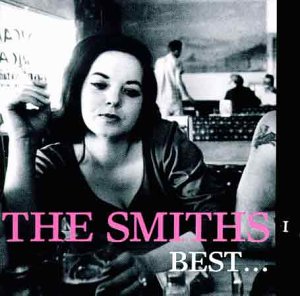
Best... I is a compilation album by the Smiths. It was released in August 1992 by the new owner of their back catalogue, WEA. It reached number one on the UK Albums Chart; it reached No. 139 on the US Billboard 200. Warner UK used a photograph taken by actor Dennis Hopper titled "Biker Couple, 1961" for the artwork of the two 1992 "best of" compilations by The Smiths.

The Very Best of The Smiths is a compilation album by English rock band The Smiths. It was released in June 2001 by WEA in Europe, without consent or input from the band. It reached number 30 on the UK Albums Chart. The album was not released in the United States.

Stop Me is a compilation album by English band The Smiths. It compiles the band's then-latest three singles and their B-sides in reverse-chronological order. Stop Me was released in January 1988 by their Japanese record company, RCA Victor.

"There Is a Light That Never Goes Out" is a song by the English rock band the Smiths, written by guitarist Johnny Marr and lead vocalist Morrissey. Featured on the band's third studio album The Queen Is Dead (1986), it was not released as a single in the United Kingdom until 1992, five years after their split, to promote the compilation album ...Best II. It peaked at No. 25 on the UK Singles Chart and No. 22 on the Irish Singles Chart. The song has received considerable critical acclaim; in 2014, NME listed it as the 12th-greatest song of all time. In 2021, it was ranked at No. 226 on Rolling Stone's "Top 500 Greatest Songs of All Time".
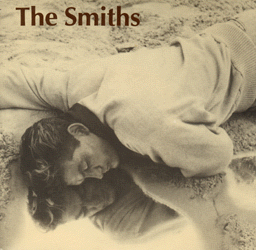
"This Charming Man" is a song by the English rock band the Smiths, written by guitarist Johnny Marr and singer Morrissey. Released as the group's second single in October 1983 on the independent record label Rough Trade, it is defined by Marr's jangle pop guitar riff and Morrissey's characteristically morose lyrics, which revolve around the recurrent Smiths themes of sexual ambiguity and lust. A different version, from the John Peel Show on BBC Radio 1, was included on the compilation album Hatful of Hollow in 1984.
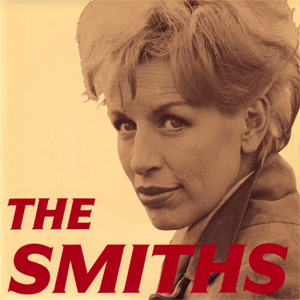
"Ask" is a song recorded by the English rock band the Smiths. It was released as a single on 20 October 1986 through Rough Trade Records. Credited to vocalist Morrissey and guitarist Johnny Marr, "Ask" is an ostensibly upbeat, positive pop song built around major chords. Its lyrics discuss shyness and encourage listeners to overcome their inhibitions. Its multiple guitar parts and complex production led to disagreements regarding its final mix. Craig Gannon, who at the time was rhythm guitarist for the group, has claimed he wrote – and was denied credit for – the song's chord structure.

"Hand in Glove" is the debut single by English rock band the Smiths, written by singer Morrissey and guitarist Johnny Marr. It was released in May 1983 on independent record label Rough Trade. It peaked at No. 3 on the UK Indie Chart but did not make the top 75 of the UK Singles Chart, settling outside at No. 124.
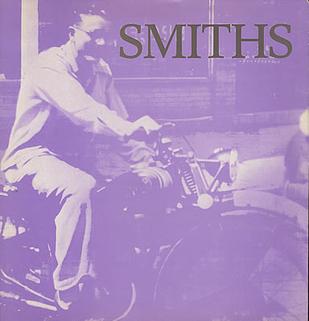
"Bigmouth Strikes Again" is a 1986 song by the English rock band the Smiths from their third album The Queen Is Dead. Written by Johnny Marr and Morrissey, the song features self-deprecating lyrics that reflected Morrissey's frustrations with the music industry at the time. Musically, the song was inspired by the Rolling Stones' "Jumpin' Jack Flash" and centres around a guitar riff that Marr wrote during a 1985 soundcheck.

"Sheila Take a Bow" is a song by the English rock band the Smiths, written by Morrissey and Johnny Marr. Featuring a glam rock-style beat and guitar riff, the song was originally planned to feature Sandie Shaw on backing vocals, but Shaw's distaste for the song and Morrissey's illness during her session resulted in the vocals not being used.
"Cemetry Gates" is a 1986 song by English alternative rock band the Smiths from The Queen Is Dead, their third album. Written by Morrissey and Johnny Marr, the song centres around a guitar riff that Marr initially thought was too uninteresting to base a song around. However, Morrissey liked it and convinced Marr that they could complete the song.

"I Started Something I Couldn't Finish" is a song by the English rock band The Smiths, written by singer Morrissey and guitarist Johnny Marr and released on the group's 1987 album Strangeways, Here We Come. Featuring a glam rock-inspired guitar riff, the song emerged from a jam during the "Sheila Take a Bow" sessions.

"Last Night I Dreamt That Somebody Loved Me" is a song by the English rock band the Smiths, written by singer Morrissey and guitarist Johnny Marr. It appears as the sixth track on the band's final album Strangeways, Here We Come (1987). It features a backdrop of crowd noises from the miners' strike of 1984–85, the song is a favourite of both Morrissey and Marr.
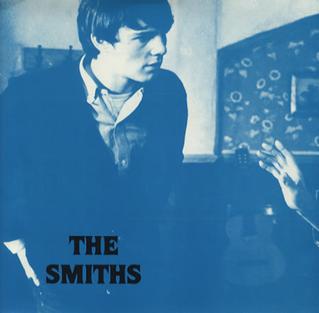
"Stop Me If You Think You've Heard This One Before" is a song by the English rock band the Smiths, written by singer Morrissey and guitarist Johnny Marr. The song was first released on the group's 1987 album Strangeways, Here We Come. Marr's music features a larger sound, courtesy of a 12-string Gibson ES-335, and one of his few guitar solos with the Smiths. Morrissey's lyrics allude to alcohol and deception.
"A Rush and a Push and the Land Is Ours" is a 1987 song by English alternative rock band the Smiths, which appeared as the opening track for the band's 1987 final album, Strangeways, Here We Come. Written by Morrissey and Johnny Marr, the song features no guitar and was inspired musically by Reparata's "Shoes" and lyrically by Oscar Wilde's mother, Jane Wilde.
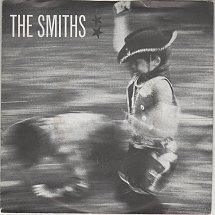
"The Headmaster Ritual" is a song by English band the Smiths that appeared as the first song on their second studio album, Meat Is Murder (1985). It was released as a single in the Netherlands. The music was written by Johnny Marr and the lyrics by Morrissey.

Work Is a Four-Letter Word is a 1968 British satirical comedy film directed by Peter Hall and starring David Warner and Cilla Black, in her only acting role in a cinematic film. The film was not well received by critics even though it was based on the award-winning play Eh? It also marked the acting debut of Elizabeth Spriggs.

"How Soon Is Now?" is a song by English rock band the Smiths, written by singer Morrissey and guitarist Johnny Marr. Originally a B-side of the 1984 single "William, It Was Really Nothing", "How Soon Is Now?" was subsequently featured on the compilation album Hatful of Hollow and on US, Canadian, Australian, and Warner UK editions of Meat Is Murder. Belatedly released as a single in the UK in 1985, it reached No. 24 on the UK Singles Chart. When re-released in 1992, it reached No. 16.
